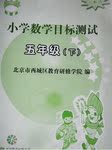题目内容
It’s you, Tom! I never dreamed ______ you here.
A. to meet B. meeting C. of meeting D. meet
C
解析:
dream of doing sth 梦想做某事。

 目标测试系列答案
目标测试系列答案When I was at university, I studied very hard. But a lot of my friends did very little work. Some did just enough to pass exams. Others didn’t do quite enough. Fred Baines was one of them. He spent more time drinking in the Students’ Union than working in the library. Once, at the end of the term, we had to take an important test in chemistry. The test had a hundred questions. Beside each question we had to write “True” or “False”. While I was studying in my room the night before the test, Fred was watching television. Fred usually worried a lot the night before a test. But that night he looked perfectly calm. Then he told me of his plan. “It’s very simple. There are a hundred questions and I have to get fifty correct to pass the test. I’ll take a coin into the examination room. I haven’t studied a chemistry book for months, so I’ll just toss the coin. In that way, I’m sure I’ll get half the questions right.” The next day, Fred came cheerfully into the examination room. As he sat tossing a coin for half an hour he marked down his answers. Then he left half an hour before the rest of us. The next day, he saw the chemistry professor in the corridor.
“Oh good,” he said, “Have you got the results of the test?”
The professor looked at him and smiled.
“Ah, it’s you, Baines, just a minute.”
Then he reached into his pocket and took out a coin. He threw it into the air, caught it in his hand and looked at it.
“I’m terribly sorry, Baines,” he said, “You failed!”
【小题1】 Fred often went to the Students’ Union where he ________ .
| A.worked extra hours | B.enjoyed himself in the bar |
| C.borrowed books | D.attended a few lectures |
| A.an excellent mark | B.a low mark | C.his usual mark | D.the pass mark |
| A.didn’t mark the test papers correctly |
| B.tossed a coin when he marked test papers |
| C.knew about Fred’s method |
| D.thought Fred’s method was good |
| A.unnecessary | B.valuable | C.useless | D.a waste |
It’s you and I who are to blame for the state of the earth. No question about it. It’s our life-style that is threatening life on Earth, so we must make the changes. The good news is that many of those changes are really quite simple, even enjoyable, but for every careful step we take as individuals, we must press government and industry to take a big step on our benefit. And we must start now. Tomorrow’s too late.
My aim this year is to persuade as many of my friends and colleagues as possible to choose the train, and leave their cars behind too. My gardens have been pesticide(杀虫剂)–free zones for years and I enjoy seeing more wildlife on my doorstep as a result; I’ve tried to reduce my contribution to water pollution too, by using environment-friendly, phosphate(磷)–free washing powder , and by no longer thinking of the toilet as a suitable waste-disposal(处理) point .
I ran after a young lady through town recently to give her back the piece of paper she had carelessly thrown away. She disappeared into a shop, and when I followed her inside and made my presentation, she was doubly embarrassed--she worked there, and the boss gave her a ticking–off too. I’ve started asking fellow drivers at gas stations why they aren’t using unleaded (无铅的) petrol . These are small things, but we have to start somewhere, and every little does help.
1.We can learn from the first paragraph that____________.
A.you and I are responsible for looking after the environment
B.the government and industry are responsible for looking after the environment
C.the government is responsible for looking after the environment
D.both A and B
2.To help the environment, the author is trying to do everything mentioned below EXCEPT_________.
A.taking the train instead of a car
B.avoiding the use of pesticides
C.throwing away the old cars
D.running after those who throw articles carelessly
3.The author ran after a woman through town because he wanted__________.
A.to find out where she worked
B.to give her back the piece of paper she had lost
C.to ask her to pay him for picking up the piece of paper.
D.to tell her not to throw away pieces of paper carelessly
4.The purpose of this passage is to__________.
A.persuade his friends to take the train
B.try to advise us all to protect our environment
C.make clear who is responsible for the environment
D.inform us of the good news